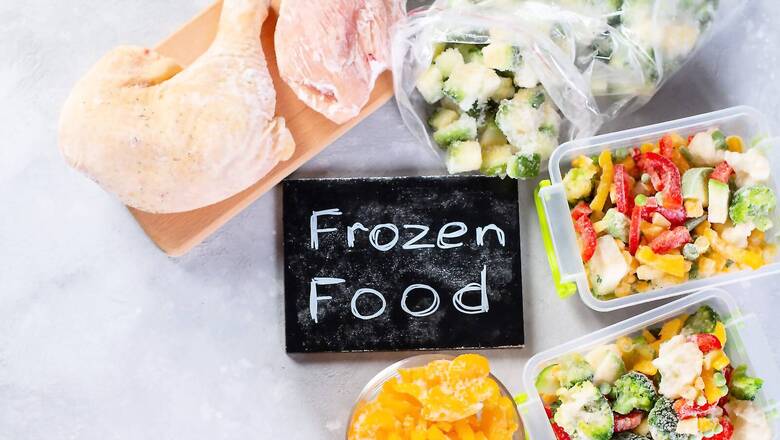
views
In today’s fast-paced environment, cooking and serving frozen food is convenient. Whether it is a small get-together or a large gathering, frozen foods are loved by all. However, certain myths regarding their nutritional value deters more than half of party-goers from indulging in them. The good news is that frozen foods can still retain essential nutrients if processed and packed appropriately.
“Frozen vegetables and fruits can indeed be nutritious if these foods are picked at peak ripeness and then processed very soon after harvest, which helps preserve the nutrients. Fresh produce that has not been frozen is likely to have a shorter shelf life due to the time it takes to package and ship," says Susan Bowerman, MS, RD, CSSD, CSOWM, FAND, Senior Director, Worldwide Nutrition Education and Training, Herbalife Nutrition. When food is not frozen, exposure to air, light, and water can deplete certain vitamins.
Frozen food is highly processed. Years ago, this might have been true. Today, consumers are more health conscious. So, food manufacturers are coming up to the plate and offering minimally processed foods, which means foods are frozen and are close to their natural state.
As we all know food stored at room temperature allows bacteria to grow rapidly and sometimes may lead to foodborne illnesses. “On the other hand, frozen food does not allow such bacteria to grow and keeps the food safe to consume for longer," adds Bowerman.
Nowadays, health enthusiasts try to eat less sodium. Keeping this in mind, frozen food manufacturers are working to reduce the amount of sodium to meet the expectations of health-conscious consumers.
If we consider all these facts, we can say that frozen food can be healthy for consumption. However, consumers should choose wisely. “Frozen food packaging comes with all the ingredients and nutritional value mentioned, and it allows consumers to compare different products to select nutritious foods. One can consider various factors such as protein, calories, fat, and sugar across the brands and make smarter choices," notes Bowerman.
As you can see, there are many ways to extend the life of your food. What is most important is that you understand which method will work best for the food in your home. When storing your food, keep it out of direct sunlight, keep it in a cool place and keep it away from other food. This will help it last longer, so you can enjoy it at its best.
Read all the Latest Lifestyle News and Breaking News here




















Comments
0 comment